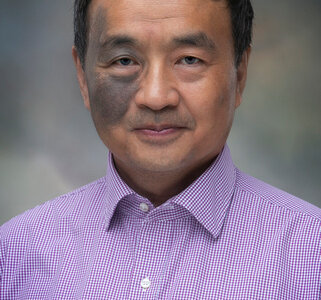Yidong Bai, PhD, professor, Department of Cell Systems and Anatomy, was recently awarded a $1.2 million grant from the Baptist Health Foundation of San Antonio, whose mission is focused on improving community health. The funds will be used to investigate the role of mitochondrial regulation and dysfunction in childhood type 2 diabetes, which is particularly prevalent in San Antonio and South Texas, as well as the United States and countries around the globe.

A team of experts
Dr. Bai will lead an experienced multidisciplinary team of researchers in the investigation, including:
- Nicolas Musi, MD, professor of medicine in the Joe R. and Teresa Lozano Long School of Medicine and director of the Sam and Ann Barshop Institute for Longevity and Aging Studies.
- Cynthia Blanco, MD, professor of pediatrics with tenure, division chief and Greehey Family Foundation chair in neonatology research.
- Yuji Ikeno, MD, PhD, professor in the Department of Pathology and Laboratory Medicine.
- Joel Edmund Michalek, PhD, professor of biostatistics in the Department of Population Health Sciences.
- Amelie Ramirez, DrPh, MPH, professor and chair of the Department of Population Health Sciences and director of the Institute for Health Promotion Research.
The role of mitochondria in type 2 diabetes
“Mitochondria are the essential organelles that produce adenosine triphosphate for cell energy,” Dr. Bai explained. Bai, who has 25 years of experience in the field of mitochondrial biology, mitochondrial genetics and mitochondrial medicine, is the first researcher in the world to achieve the establishment of a mitochondrial transformation system in mice.
“Mitochondria play a central role in metabolism, cell signaling and cell survival,” Dr. Bai said. “Mitochondrial dysfunction has been associated with various human diseases including metabolic disorders like type 2 diabetes.”
Current first-line medicines for type 2 diabetes (metformin and rosiglitazone) have been shown to target mitochondrial machinery. However, the underlying mechanism is not clear, and recent studies also indicate that Hispanic pediatric diabetes patients with distinctive mitochondrial genotypes respond poorly to current treatments.
Investigating the role of genetics
Dr. Bai explained that looking into genetics could provide more insight into these mechanisms. “The top risk factors for childhood diabetes include race, family history and weight,” Dr. Bai said. “Which indicates that genetic elements controlling metabolism could play an important role in the pathogenesis of diabetes.”
To understand the role of these genetic elements, Dr. Bai and his team of experienced researchers will investigate mitochondrial pathways and mitochondrial function in the Hispanic population in South Texas, determining if Hispanic-specific mitochondrial genotypes play a role in the prevalence of type 2 diabetes. The establishment of an association between inheritable mitochondrial dysfunction on childhood diabetes and related work in animal systems will also identify risk factors for this disease, which disproportionately affects children under 18 years of age in San Antonio.
Childhood type 2 diabetes in Bexar County: Sobering statistics
According to Dr. Bai, the prevalence of type 2 diabetes is greater in Texas than in the rest of the U.S., and Bexar County’s age-adjusted mortality rate for the disease is greater than that of the state of Texas overall. And with such a large Hispanic population in the region, most notably, Hispanic children under 18 years old who make up 68.2% of Bexar County and 72.3% of the population of San Antonio, there is a great need for this research.
Improving outcomes for underserved communities
“With UT Health San Antonio being a minority-serving institution with access to major area hospitals, we are in the best position to access relevant samples for this research,” Dr. Bai said, noting that the institution takes part in the UT System Biobanks, a statewide consortium enriched with samples from the Hispanic population throughout Texas.
“Together, this research will provide an opportunity to discover preventive measures and identify the effects of related diet styles on metabolic and physiological conditions to help develop a guideline to reduce childhood type 2 diabetes among this traditionally underserved community,” Dr. Bai said.

